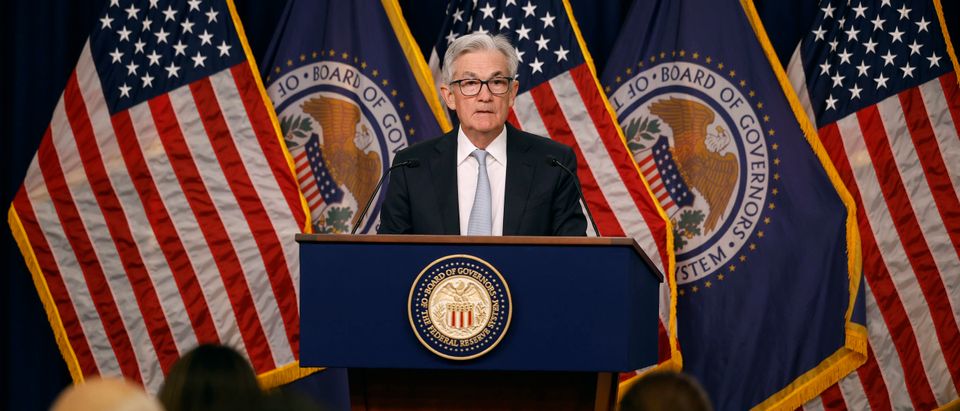Federal Reserve Chairman Jerome Powell indicated Wednesday that the central bank would opt for a less drastic hike the next time it increases interest rates.
The Fed chair delivered over 15 minutes of prepared remarks at an event held by the Brookings Institution, a prominent DC think tank, before taking questions from a Brookings scholar. Powell said he believes it makes sense for the central bank to begin moderating its interest rate increases and that the Fed could roll out this new policy at its December meeting, The Wall Street Journal reported.
Powell: “The time for moderating the pace of rate increases may come as soon as the December meeting.” https://t.co/YlZFha3ktg
— Nick Timiraos (@NickTimiraos) November 30, 2022
The Fed is approaching a level of restraint sufficient for bringing down inflation, Powell said, while cautioning against a premature loosening of monetary policy. At each of the Fed’s past four meetings, the central bank has raised interest rates by 0.75 percent, or 75 basis points, to combat inflation, CNBC noted.
Powell said it was necessary to cool the overheated labor market before the Fed could be confident that inflation will decrease toward the central bank’s goal of 2%, the Journal reported. (RELATED: Businesses Add Fewest Jobs In Two Years As Manufacturing Craters)
In his speech, Powell also gave an overview of the economic environment and how the Fed’s interest rate tightening has affected demand growth. He broke down inflation in different categories of the economy and pointed to signs of progress, per the Journal.
Powell reportedly expects price decreases in goods and rents, two core contributors to inflation, but believes they will be insufficient for bringing inflation down if firms keep hiring at the same rate. The labor supply shortfall during the pandemic is unlikely to close anytime soon, and it has not been matched by a moderation in the demand for labor, the Fed chair observed.
The Federal Reserve’s interest rate increases are designed to reduce inflation by tightening financial conditions in order to slow the economy. Higher interest rates typically curb demand by raising borrowing costs, lowering stock prices and strengthening the dollar, the Journal noted.
Last month’s Consumer Price Index (CPI) reported year-over-year inflation of 7.7%, the lowest since January, according to the Bureau of Labor Statistics (BLS). The CPI measures inflation by accounting for the change in prices paid by consumers for goods and services, BLS explained in a press release.


